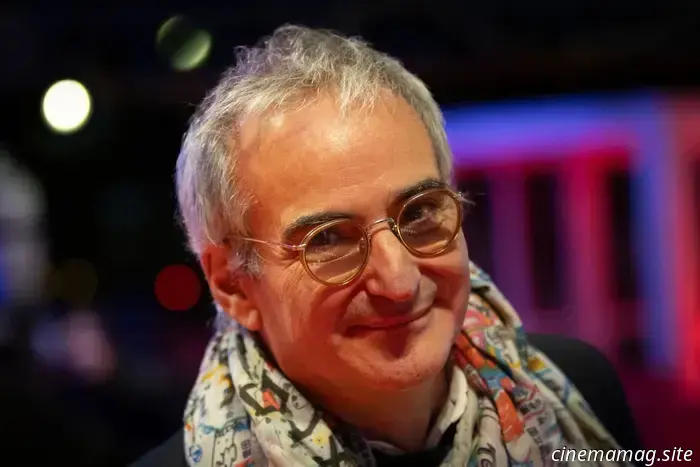
"I Will Never Get Away with This": Olivier Assayas Discusses Creating Reality Fiction with Paused Time and the Premiere of The Wizard of the Kremlin
Whether facing a competitive market, debuting at a bustling festival, or the widely accepted notion that many people aren't keen on films about COVID (as evidenced by Bertrand Bonello’s Coma), Olivier Assayas’ Suspended Time has taken a little longer to reach the U.S. since its premiere at Berlinale in early 2024. This delay comes despite Assayas being a prominent figure nearly 40 years after his feature film debut, and fresh from the notable success of Irma Vep. Regardless of the circumstances, it’s not a matter of quality––Suspended Time is a highly enjoyable piece that wraps the pervasive fears, anxieties, and unexpected joys of 2020 into a concealed cine-memoir reflecting Assayas’ life, work, and mentality.
Having interviewed him several times over the years, I was pleased to conduct a Zoom interview as the film gears up for its U.S. release. Coincidentally, I caught Assayas at an interesting time: while promoting the somewhat delayed release of one film, he’s already completed another––The Wizard of the Kremlin, an adaptation of Giuliano da Empoli’s French literary hit that resembles a biopic of Vladimir Putin featuring Jude Law. His thoughts about this upcoming release might provide valuable insight for any artist grappling with the pressure of presenting new work.
The Film Stage: In 2019, we discussed Wasp Network, and you mentioned voiceover, which intrigued me since you had rarely utilized it in your films. As a big admirer, I was thrilled to hear your voice at the start of Suspended Time. I feel like many French filmmakers include themselves in their films at some point, and you’ve finally done that here.
Olivier Assayas: I believe it was the only way I could approach it.
Considering this––perhaps you’ve partly answered the question––how did you navigate directing yourself? What indicated to you that your performance was adequate?
Honestly, we recorded it in two or maybe three takes, and then adjusted a word here and there. It was the simplest part of the shooting process for me. For some reason, the rhythm of the voiceover was already in me, and it flowed out completely naturally. I think Guy Debord was an inspiration for me because in his films––such as In girum imus nocte et consumimur igni––he does voiceover, which adds a distinct emotion to those works, so I tried to adopt a similar approach in my own way.
Were you comfortable listening to it? Were you satisfied with the result?
I was actually surprised to be pleased with what I did, yes. Normally, I don't think this way [Laughs], but in this instance, it was the easiest part of the film. I had a clear vision of what I wanted, we recorded it, and it worked. In my upcoming film, The Wizard of the Kremlin, which will show at Venice, there’s quite a lot of voiceover. A lot. But that’s also because I'm adapting a novel, so it’s important to convey the author’s style.
There’s a fascinating relationship with the outside world in this film, where before the epilogue, everyone approaches the characters from both literal and figurative distances. I feel you found some effective and engaging ways to film those interactions––the blocking, the editing. From a practical perspective, did you have actors on video calls speaking into a computer for their recordings?
Yes, yes, yes. They were live, and they were in the same small village. We rented a room in some neighbors' houses, used a digital camera, and most often the actor or actress interacting [Laughs] was alone. There might have been one sound technician with them.
Olivier Assayas and cast at Berlinale 2024 © Jens Koch
I imagine you don't compose a bad shot or create a dull frame. However, when ordinary people, like a therapist or your ex-partner, communicate with you, their framing is likely more utilitarian. I'm curious about your thinking regarding maintaining fidelity to reality without producing mundane visuals.
I recall the scene where the daughter, the little girl, takes the phone and runs around while filming herself––she was simultaneously having a conversation. I liked that idea and was surprised it worked, as I thought, “I will never pull this off,” but it surprisingly did. In Suspended Time, every new setting is a significant event, making it exciting for the audience and me when characters interact with someone unfamiliar.
So each shot where they suddenly meet someone new becomes a thrilling narrative moment. It’s new information, and that keeps the audience engaged and makes me happy. [Laughs] There are characters whose appearance is uncertain, like the ex-wife, so it’s exciting when she unexpectedly shows up.
When we discussed Irma Vep a few years back, you commented on how the director character represents you, yet isn’t you; Jade Lee is Maggie Che

Other articles
 James Gunn's Superman is set to be released on 4K Ultra HD, Blu-ray, and DVD.
In anticipation of its digital release on Friday, August 15th, Warner Bros. Home Entertainment has revealed that James Gunn’s superhero blockbuster, which rebooted the DC Universe, will be available on 4K Ultra HD, Blu-ray, and DVD in September. Below, you can find the cover artwork and details about the special features... SEE ALSO: James Gunn to write and direct […]
James Gunn's Superman is set to be released on 4K Ultra HD, Blu-ray, and DVD.
In anticipation of its digital release on Friday, August 15th, Warner Bros. Home Entertainment has revealed that James Gunn’s superhero blockbuster, which rebooted the DC Universe, will be available on 4K Ultra HD, Blu-ray, and DVD in September. Below, you can find the cover artwork and details about the special features... SEE ALSO: James Gunn to write and direct […]
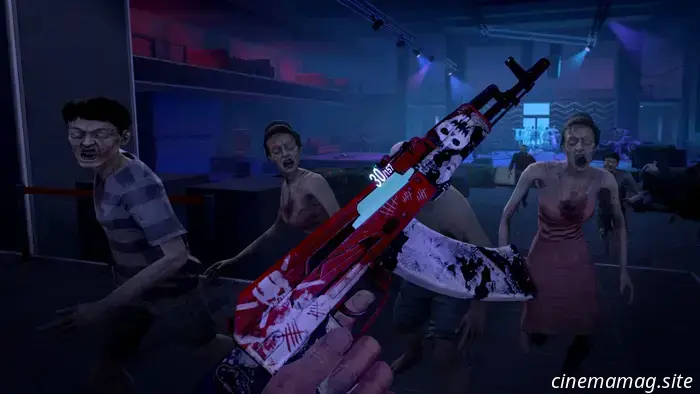 World War Z VR is now available on Meta Quest and SteamVR.
Saber Interactive’s World War Z VR has been released on Meta Quest and Steam VR, enabling players to dive into the thrilling action of this immersive FPS inspired by the hit Paramount Pictures movie. For only £14.99 | €19.99 | $19.99, players can battle against massive swarms of aggressive zombies. Check out the new launch trailer below […]
World War Z VR is now available on Meta Quest and SteamVR.
Saber Interactive’s World War Z VR has been released on Meta Quest and Steam VR, enabling players to dive into the thrilling action of this immersive FPS inspired by the hit Paramount Pictures movie. For only £14.99 | €19.99 | $19.99, players can battle against massive swarms of aggressive zombies. Check out the new launch trailer below […]
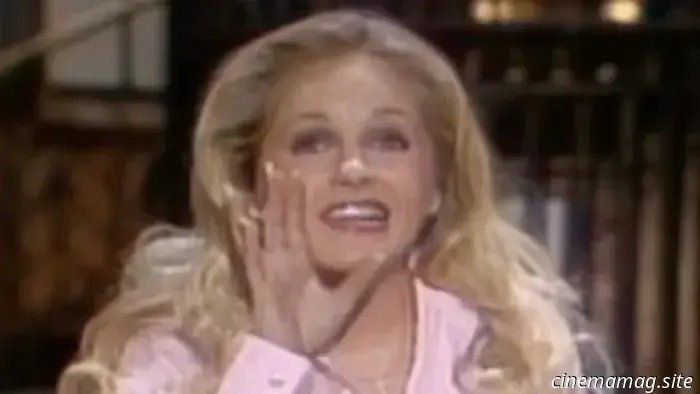 SNL Unleashed: 13 Behind-the-Scenes Tales of Saturday Night Live
These behind-the-scenes tales from SNL reveal some backstage incidents that are even more outrageous than the show itself.
SNL Unleashed: 13 Behind-the-Scenes Tales of Saturday Night Live
These behind-the-scenes tales from SNL reveal some backstage incidents that are even more outrageous than the show itself.
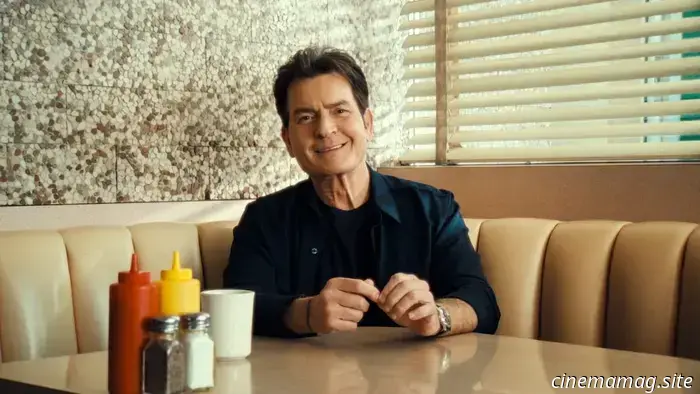 Charlie Sheen Reveals Everything in Netflix Documentary titled Charlie Sheen
It’s difficult to picture Charlie Sheen having any more revelations about himself, but the new Netflix documentary titled "Charlie Sheen" claims that the former star of "Two and a Half Men" has more to share.
Charlie Sheen Reveals Everything in Netflix Documentary titled Charlie Sheen
It’s difficult to picture Charlie Sheen having any more revelations about himself, but the new Netflix documentary titled "Charlie Sheen" claims that the former star of "Two and a Half Men" has more to share.
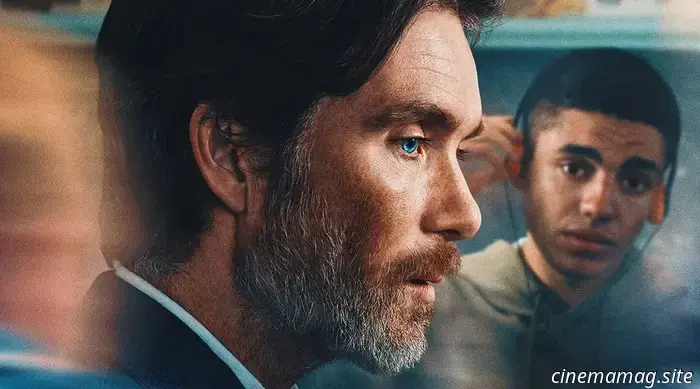 Cillian Murphy portrays Steve in the trailer for the upcoming Netflix film.
Netflix has released a poster and trailer for "Steve," directed by Tim Mielants, which is a reimagining of Max Porter's Sunday Times bestseller "Shy." The drama features Oscar-winning actor Cillian Murphy in the role of a headteacher grappling with his own mental health issues while striving to preserve the integrity of a reform school facing imminent closure. Alongside Murphy in the […]
Cillian Murphy portrays Steve in the trailer for the upcoming Netflix film.
Netflix has released a poster and trailer for "Steve," directed by Tim Mielants, which is a reimagining of Max Porter's Sunday Times bestseller "Shy." The drama features Oscar-winning actor Cillian Murphy in the role of a headteacher grappling with his own mental health issues while striving to preserve the integrity of a reform school facing imminent closure. Alongside Murphy in the […]
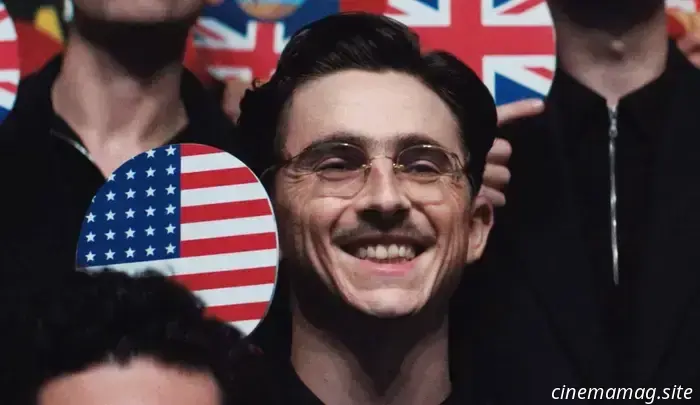 Timothée Chalamet pursues ping-pong excellence in the trailer for Marty Supreme.
A24 has released the initial trailer for director Josh Safdie’s forthcoming dramedy, Marty Supreme, set in the 1950s. Timothée Chalamet stars as Marty Mauser, a professional ping-pong player with an ambitious dream that others doubt. The cast includes Gwyneth Paltrow, Odessa A’zion, Kevin O’Leary, Tyler Okonma, Abel Ferrara, and Fran Drescher. Check […]
Timothée Chalamet pursues ping-pong excellence in the trailer for Marty Supreme.
A24 has released the initial trailer for director Josh Safdie’s forthcoming dramedy, Marty Supreme, set in the 1950s. Timothée Chalamet stars as Marty Mauser, a professional ping-pong player with an ambitious dream that others doubt. The cast includes Gwyneth Paltrow, Odessa A’zion, Kevin O’Leary, Tyler Okonma, Abel Ferrara, and Fran Drescher. Check […]
"I Will Never Get Away with This": Olivier Assayas Discusses Creating Reality Fiction with Paused Time and the Premiere of The Wizard of the Kremlin
Whether facing a challenging market, launching at a bustling festival, or the widely recognized truth that many viewers are uninterested in films related to COVID (as evidenced by Bertrand Bonello's Coma), Olivier Assayas' Suspended Time has taken a bit longer to reach the U.S. since its debut at Berlinale in early 2024. This is despite
